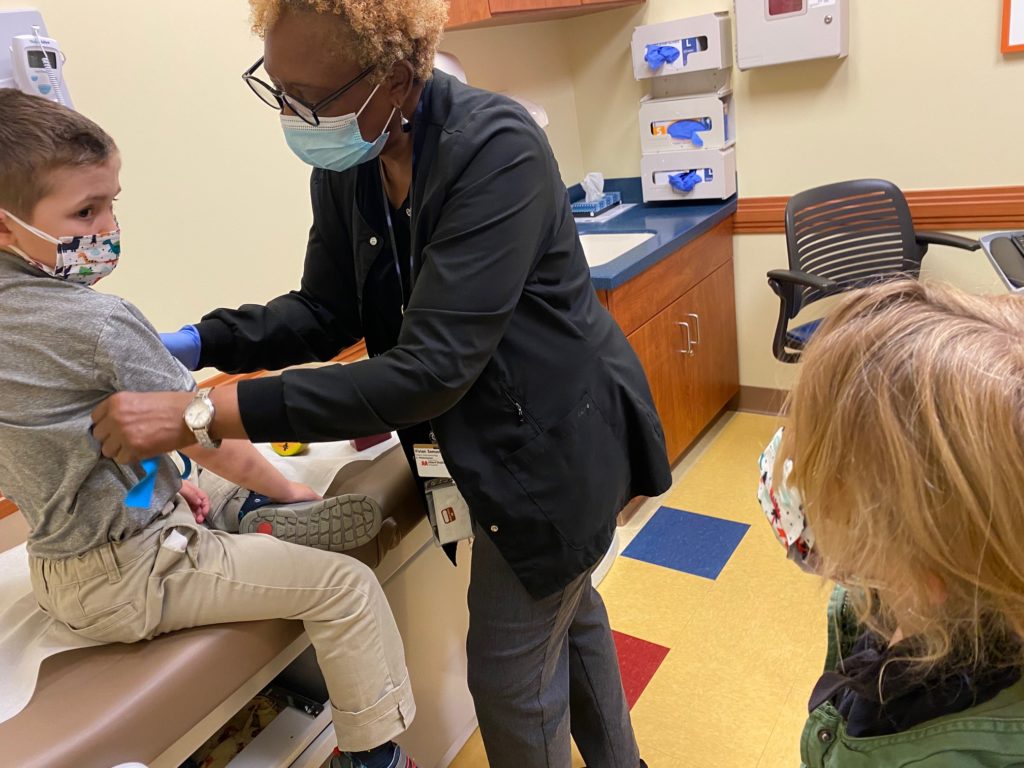
As the COVID vaccination effort stalls out with adults, some children are now getting their shots — in the name of science. COVID trials for kids under 12 are just starting, and they’ve had no trouble recruiting families.
Every family has their own reasons. But for Colleen Melchiorre of Nolensville, it’s mostly about protecting her 9-year-old son. He’s a heart transplant recipient and can’t be part of the trial. But his little sisters can — not that the 4-year-old or 7-year-old would have volunteered on their own. “I don’t think we want a shot,” they tell their mom.
“So my response to them is, ‘You’re going to get the vaccine. You can get it and help thousands of children and your brother. Or you can wait,’ ” she says. “I’m not going to hold them down in the clinical trial.”
They’re still not guaranteed a dose, since they’re going to be part of a late-stage trial in which a third of participants get a placebo. But even if they don’t get the dose, Melchiorre views it as a small payback for the medical science that has been done on her son’s behalf.
And the risk for the girls is low since safety has already been shown in adults.
“We’re not on the chopping block of science experiments,” she says. “Yes, I would love for my girls to get vaccinated sooner, and … somebody has to go first.”
Overwhelming response
The Melchiorre kids are part of Pfizer’s pediatric trial site at Clinical Research Associates in Nashville. CRA was given 55 slots, which are already full. The company is still looking for 12-year-olds to 17-year-olds for a Novavax trial.
The Moderna site — a joint effort between Vanderbilt University Medical Center and Meharry Medical College — has 20 remaining slots and a queue of 1,000 children.
“Most of this appetite comes from parents who have already received their COVID shots,” says Dr. Vladimir Berthaud, the principal investigator from Meharry.
Vaccinated parents consider the freedom to get out more and see loved ones, especially those who are elderly.
“They want to travel together, meaning they have to travel with their kids. So they will feel safer if their kids are vaccinated as well,” he says.
Usually, it is a little tougher to get kids into clinical trials. In fact, Dr. Buddy Creech at Vanderbilt says the experiments have to be carefully structured to minimize the needle sticks.
Aside from the shots, blood draws are needed to check the antibody response. Creech says they’re doing half the number of blood draws as for the adult COVID vaccine trials.
“It’s not even the vaccine shots, which hurt more than a blood draw, which effect people. It’s really the blood sampling,” Creech says. “I don’t know if it’s seeing the blood or just it represents something different.”
For the Melchiorres in Nolensville, the prospect of blood being sucked out of them was a little freaky for the girls. But their brother does it all the time because of his heart transplant. So last week they went with him to see how it works and prepare for their turn when the vaccine trial starts next month.
Correction: This story originally misstated the portion of participants who would receive a placebo in trials run by Clinical Research Associates. It’s one-third, not one-half.

